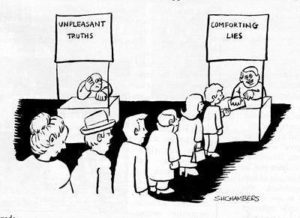Recently the question came up as to whether an affair could be due to hormones. Researchers have long known hormones can radically change a person, but can they make you cheat?
In terms of hormone studies, there have been several interesting findings. One is that some researchers found that the hormone oestradiol has been linked to women who have more affairs. Those with higher levels think and behave differently than those with lower levels of the hormone.
Another finding is that males with high testosterone and cortisol are more willing to take risks. This risk-taking includes a willingness to cheat. A professor associated with the research, Robert Josephs stated,
“Testosterone furnishes the courage to cheat, and elevated cortisol provides a reason to cheat.”
Research findings like these indicate there is some link between cheating and hormones. What’s not known is ‘how strong that link is.’ The study on men only included 117 college students. A study that small raises questions in my mind. This is why you have to exercise extreme caution in considering some of these studies. To make a decision about all cheaters based on 117 people is dangerous.
However, there are also studies that suggest hormones may not be the main cause for infidelity. A study published in the Journal of Family Psychology found that gender, relationship satisfaction, and sexual dissatisfaction were stronger predictors of infidelity than hormonal levels. So which study are you going to believe? In these cases, it is a matter of faith in terms of which fairy tale you choose to believe. With small studies, your choice of what to believe becomes a question of “paper or plastic”.
Making life decisions about whether or not an affair was due to hormones based on the behavior of some college students is scary. College students are known for their risk-taking. Making major relationship decisions in your marriage based on how a college student behaves and thinks is shaky ground.
You also need to consider that both hormone studies were done at the University of Texas. When such surprising findings for both men and women come from the same university, I become suspect. Since I live near the university and am familiar with the behaviors of their students, it often doesn’t take much to give such students and excuse for an ‘affair’. Bear in mind that the University of Texas was also considered among the top 25 party schools in the nation for 2023.
The researcher who examined the impact of hormones in women has since left the University of Texas and now teaches marketing with an emphasis on consumer behavior.
Although links were found between hormones and affairs, it’s not time to loudly proclaim “It’s not my fault! and science proves it”. If there is truly a strong link, other researchers from other locations will replicate similar findings.
Hormones definitely play a role in prolonging the trauma after an affair. The role of such hormones has been documented repeatedly across studies. The hormones involved often keep you ‘stuck’ in a state of either shock or depression following an affair.
Cortisol is one of several hormones that keep you stressed and unable to ‘calm down’. There are times when you want to be yourself, yet find that you can’t. There is a reason for that and it involves those pesky hormones.
The good news is that you don’t have to stay stuck in that hormonal parking lot. You can learn ways of getting past the stress. In my video on Affair Trauma, you’ll learn ways of getting unstuck from those situations.
In such cases, it really is “not your fault” that you’re unable to get past the affair, for both men and women. Those hormones involved totally change your mood and your ability to handle stress. They change your thinking, your blood pressure, your digestion and many other bodily functions.
Those mood changes and stress you are experiencing, along with the bodily symptoms really are not your fault. Once the powerful stress-related hormones kick in, you lose control of your body. The chemicals take over and start calling the shots, even when you don’t want them to. There is a reason you’ve been feeling out of control.
If you’re caught up in ‘the lifestyle’ of swinging, you are not immune from those hormonal changes. Your situation has some different dynamics. Those are addressed in the Relationship Trauma for Swingers video.
The link between hormones and affairs is real. Hormones impact your behavior and thinking in powerful ways. The twist is that those hormones have a bigger impact at the end of an affair than at the beginning of one.
Keeping It Real,
Jeff















